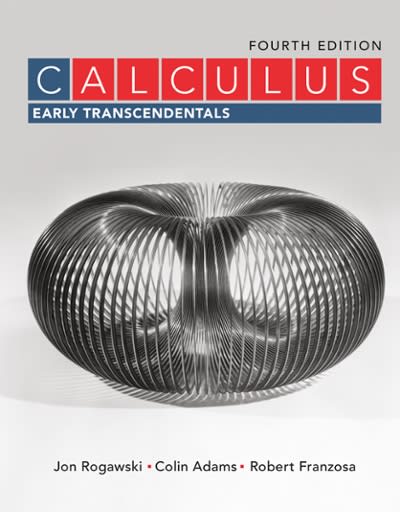Question
Hypothesis Testing With One Sample In simple terms, with hypothesis testing, we are always trying to come to a conclusion about a mean of a
Hypothesis Testing With One Sample
In simple terms, with hypothesis testing, we are always trying to come to a conclusion about a mean of a single variable or about the means of two variables. For instance, for hypothesis testing with one variable, you might test what the mean temperature of a healthy individual is (a study conducted by Alan Shoemaker). The null hypothesis (H0) might be, "The mean temperature of a healthy individual is 98.6 degrees Fahrenheit." The alternate hypothesis (H1) would then be that the mean temperature of a healthy individual is NOT 98.6 degrees Fahrenheit. In Alan Shoemaker's study, he tested 130 healthy individuals and found that in 62% of cases, the temperature was less than 98.6. The result was significant enough to reject the null hypothesis.
For hypothesis testing with two variables, we might be interested in knowing if there is a difference in the mean value of properties sold by male real-estate agents and female real-estate agents in a given area of the country. The null hypothesis (H0) would be that there is no difference in the mean values of properties sold. Usually, the researcher is hoping to reject the null hypothesis, meaning that there is a difference between the mean price of properties sold by male real-estate agents as compared to properties sold by female real-estate agents. To determine whether or not to reject the null hypothesis, a significance test is conducted to determine if the results warrant rejecting the null hypothesis.
- Come up with a real-life situation in which you might be curious to know if there is a difference between two means (averages). State the null and alternative hypothesis of your real-life situation.
- Alternatively, you may research other examples of situations where hypothesis testing could be used in decision-making. Describe the study and/or situation, noting the null and alternative hypothesis if the study or situation. Make sure to cite your source(s).
Step by Step Solution
There are 3 Steps involved in it
Step: 1

Get Instant Access to Expert-Tailored Solutions
See step-by-step solutions with expert insights and AI powered tools for academic success
Step: 2

Step: 3

Ace Your Homework with AI
Get the answers you need in no time with our AI-driven, step-by-step assistance
Get Started


